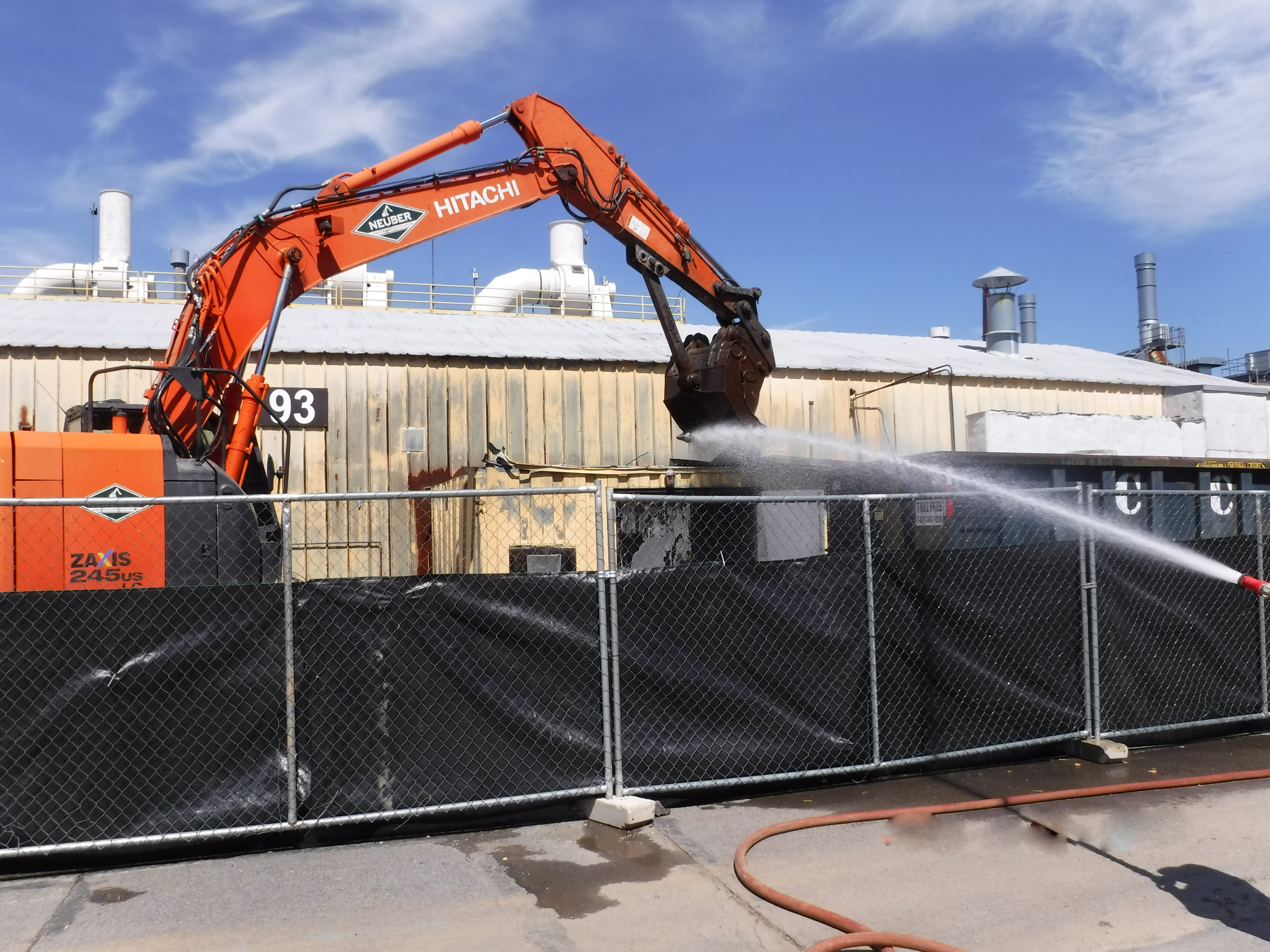Tobyhanna Army Depot
Complex Problems
Demolition
Construction & renovation
Overview: Partnering with USACE Huntsville, we provided pre-demolition assessment, abatement, and removal of asbestos containing materials and other regulated materials. Additional services included the disconnection and capping of utilities, diversion and disposal of all debris, and restoration of the site to a specified condition. Following demolition, we restored all work sites with respect to grading and proper drainage. Structures that were demolished included facilities Building 1001-Admin General Purpose building (4,830 ft2); 1006-Youth Center (5,377 ft2); and S0093-Electrical Maintenance Depot (8,376 ft2). After final removal of facilities, we cleaned, restored, and backfilled the areas.
Utility disconnects confirmed and Freon recovery conducted before demolition.
5,783 ft2 of asbestos containing materials removed.
Completed demolition of three structures totaling out to 14,606 ft2.
Restoration activities included: backfilling, compaction testing, and final grading.
800 gallons of fuel oil recovered and recycled. With a 86.8% diversion rate, we exceeded the 60% diversion target at Tobyhanna, saving the government $182,988.
We are pleased to serve the U.S. Army Corps of Engineers on key demolition and site remediation projects. Serving as the lead contractor, we provided project management, subcontractor integration, project scheduling, and project controls.

This project award included the demolition of three structures: Building 1001 at 4,830
ft2, Building 1006 at 5,377 ft2 and Building S0093
at 8376 ft2, for a total of 18,583 ft2. Ultimately, Building 1006 was
eliminated from the site tasks when TYAD base personnel demolished
the structure ahead of our mobilization. A contract modification was initiated after
mobilization to include the addition of Building
21 (1,400 ft2), and the de-scope of Building 1006 abatement and demolition activities
while retaining and expanding the Building 1006
restoration activity. Gross square footage for the three buildings totaled 14,606
ft2.
Following mobilization, abatement activities were conducted in Buildings 1001 and S0093 to
remove a combined 5,783 ft2 of asbestos containing
materials. Other regulated materials were removed from all buildings, as well as other items
which were delivered to the base environmental
recycling program. A total of 800 gallons of fuel oil was recovered and recycled from two
storage tanks.
Prior to demolition, Freon recovery was conducted
in all refrigeration and air conditioning units associated with the buildings.
Utility disconnects were initiated and confirmed before demolition. All three structures were
demolished from the top down and
materials were segregated into three categories: Construction and debris, metals, and masonry
(brick/block/concrete). Construction
and debris materials were transported to a local landfill, while metals were shipped to a
recycling facility and masonry was either
recycled or used as backfill. Pads, foundations, and other construction features were removed to
a depth of four feet. With a 86.8% diversion rate,
Perma-Fix exceeded the 60% diversion target at Tobyhanna, saving the government $182,988.
Restoration of each building site included backfilling to grade with either native soils or
recycled masonry. Compaction testing was
conducted at all of the sites with the exception of the Building 21 site where characteristics
were not favorable to compaction.
Site 1001 and 1006 were both finished with top soil and hydro-seeding, while sites S0093 and 21
were final graded with recycled
masonry to specifications.
Common activities to all facilities included installing perimeter fencing; disconnecting
electrical lines at the nearest service pole
following coordination with the Contracting Officer's Representative (COR) and the
Department of Public Works (DPW); and removal, cutting,
and capping the associated water, sewer, and drain lines at locations greater than 15 feet from
the buildings.

Waste Treatment
Our fixed base facilities offer highly specialized treatment options that help reduce risk and avoid costly internal program development.
. .
Nuclear and Radiological Services
Our highly experienced team of professionals can handle domestic and international challenges across all project disciplines.
. .
Health Physics
Services
We have cutting-edge technologies, a large team of industry experts, extensive capabilities, and an unwavering commitment to safety.
. .
Innovation and Technology Development
We are equipped with the capability and facilities to pioneer groundbreaking innovations in unique treatment capabilities.
. .